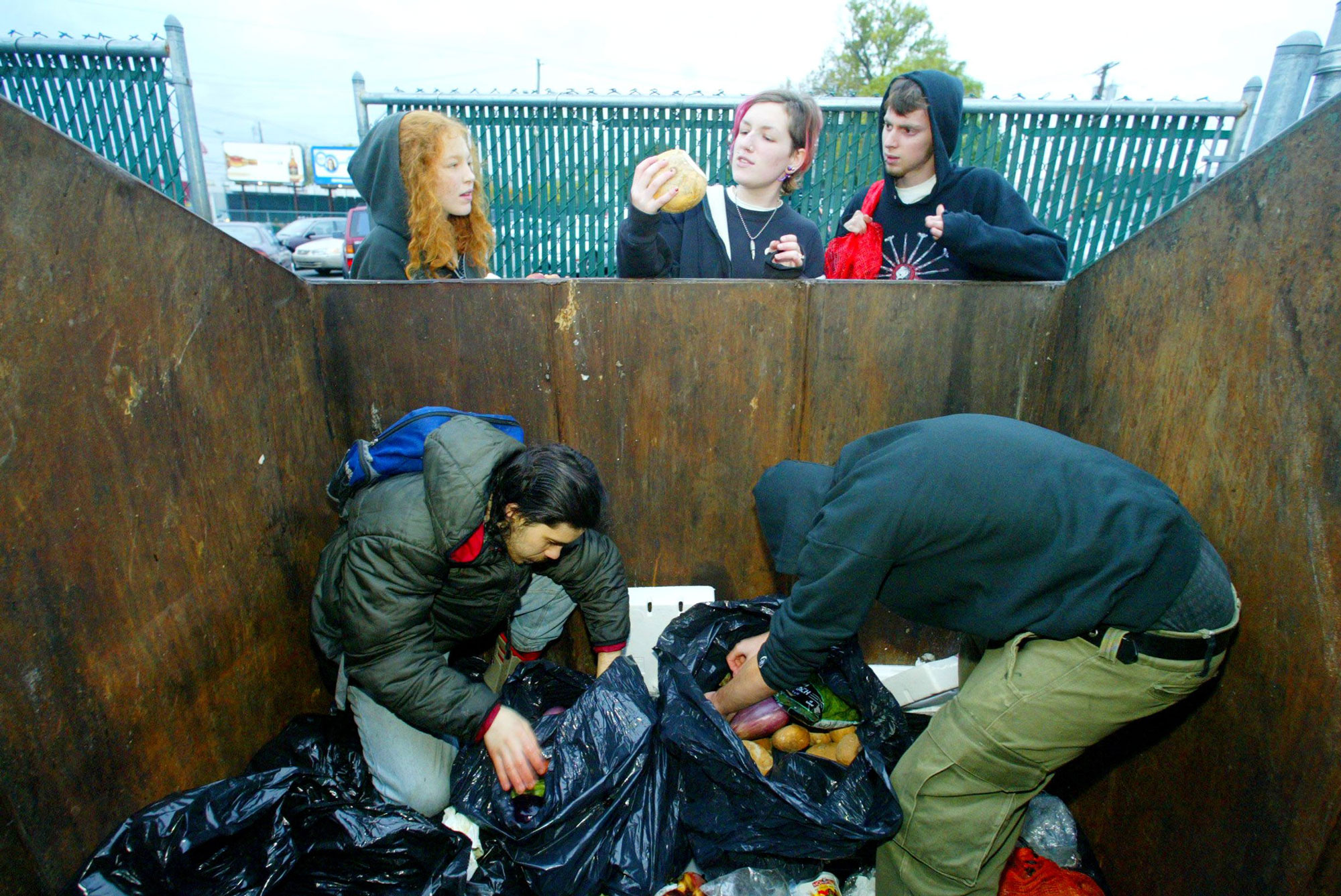With the end of the school year quickly approaching, many Gusties with cafeteria accounts are running low on funds. Perhaps your money was spent on late night cheese bread orders, frost-your-owns used to bribe professors or those amazing hummus, black olive and pineapple sandwiches … wait, just me? That’s embarrassing.
Nevertheless, your account is dwindling faster than Lindsay Lohan is re-entering rehab. The solution: become a freegan! Before watching Oprah’s special, “Living on the Edge,” I thought only the homeless ate from garbage cans. Ferne Edwards, author of “Dumpster Dining,” an article published by Alternatives Journal in 2006, explains that “freegans choose to eat out of dumpster bins to protest wasteful consumption.” The word freegan is compounded from “free” and “vegan.” Unlike most college students, many freegans actually have the money to purchase real food, but instead choose to dumpster dive, or dine, in order to express their political and environmental concerns.
 Right about … now, I am sure you are thinking this sounds extreme and completely repulsive. I know, right? Wait just a few paragraphs longer before you judge the freegan lifestyle.
Right about … now, I am sure you are thinking this sounds extreme and completely repulsive. I know, right? Wait just a few paragraphs longer before you judge the freegan lifestyle.
This growing grassroots subculture is made up of individuals who choose not to partake in consumer society. Raina Kelley of Newsweek’s October 2007 article stated that although freeganism is now present in most American cities, “this culture first became evident out West in Seattle and Portland in the mid-1990s.” Freegans believe that the mentality “out with the old, in with the new” only perpetuates our habit of wasting the world’s resources. This practice by affluent societies produces an amount of waste so enormous that countries could be fed, clothed and provided for with our trash.
Most freegans collect food from supermarket dumpster bins. An Oprah special story entitled “Living on the Edge” aired on February 27, 2008, and featured Madeline—a retired New York City executive who once earned six figures. In that show, Madeline shows off her kitchen which is fully stocked with fruit, vegetables, milk, bread, eggs and even cut flowers—all of which came from the trash. What about the items one is unable to find while diving? Madeline spends roughly $10 to $20 a week on items not found in the dumpsters.
Mentally, I am sure you are picturing the food as messy, squashed and expired; however, the food she’s eating is far from gross. The majority of the food remains in its original packaging and has only been tossed for cosmetic reasons, not because of poor quality. Edwards contends that you can find anything in a dumpster: “From organic macadamia nuts, apples, laundry detergent, fertilizer, jars of olives to feta cheese; anything you can think of that the supermarket stocks.” Madeline explains how cartons of eggs are regularly thrown away if only one egg out of the twelve is broken. Fruit is also a common item which enters the trash when it has only minor dents.
Alright … so who’s with me? If you are hitting rock bottom with your cafeteria account, you could save some money by checking out the local dumpsters. We might be able to avoid a trek into town; we have a restaurant right here on campus (the Caf) that produces thousands of dollars of food daily. Or anyone interested in a late-night trip to Econo’s dumpster on Sunday evening? Make sure to grab your hard-hat, flashlight and an empty garbage bag for all of your treasures.
Obviously, most people aren’t ready or willing to begin late-night searches through bags of garbage, but there are other ways to cut down on your personal consumption. Madeline recommends that viewers ask themselves, “Do I really need that new sweater or pair of shoes? New electronics? Do I really need to drive my gas guzzler everywhere? Or could I use my rollerblades or bicycle?” The freegan lifestyle not only affects those who practice it, but teaches our society that people can live without Coach purses, a Wii and store-bought food.
Photo courtesy of: MCT Campus